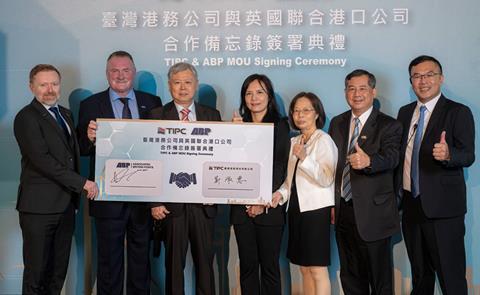Associated British Ports (ABP) has signed a memorandum of understanding (MoU) with Taiwan International Ports Corporation (TIPC) for collaboration on floating offshore wind projects.

The MoU opens the door for information and experience sharing between the two signatories on floating offshore wind-related port facilities and for the exploration of future business collaboration opportunities, said ABP.
Henrik L. Pedersen, ceo of ABP, added: “This agreement with Taiwan International Ports Corporation (TIPC) represents an exciting new stage in our journey towards net zero, for which international collaboration is key. Floating offshore wind presents huge opportunities to the UK, from becoming a global leader in green energy generation to creating significant jobs, prosperity and energy security. We look forward to working with TIPC to exchange ideas and accelerate the advancement of this technology.”
TIPC vice president of business, Shu-hui Cheng, said: “The third phase of offshore wind power development is about to unfold in Taiwan. With larger scale wind turbines, localisation policies, etc., there will be more demand for land and space in ports of Taiwan, and the demonstration plan of floating wind will also bring up more requirements and challenges. Through the signing of the MoU with ABP and information sharing between the two parties, I believe that TIPC will be fully prepared on port planning and construction in coordination with offshore wind power policies.”
TIPC is particularly interested in learning how to best develop the port infrastructures necessary to support the future development and installation of floating offshore wind in Taiwan.
















